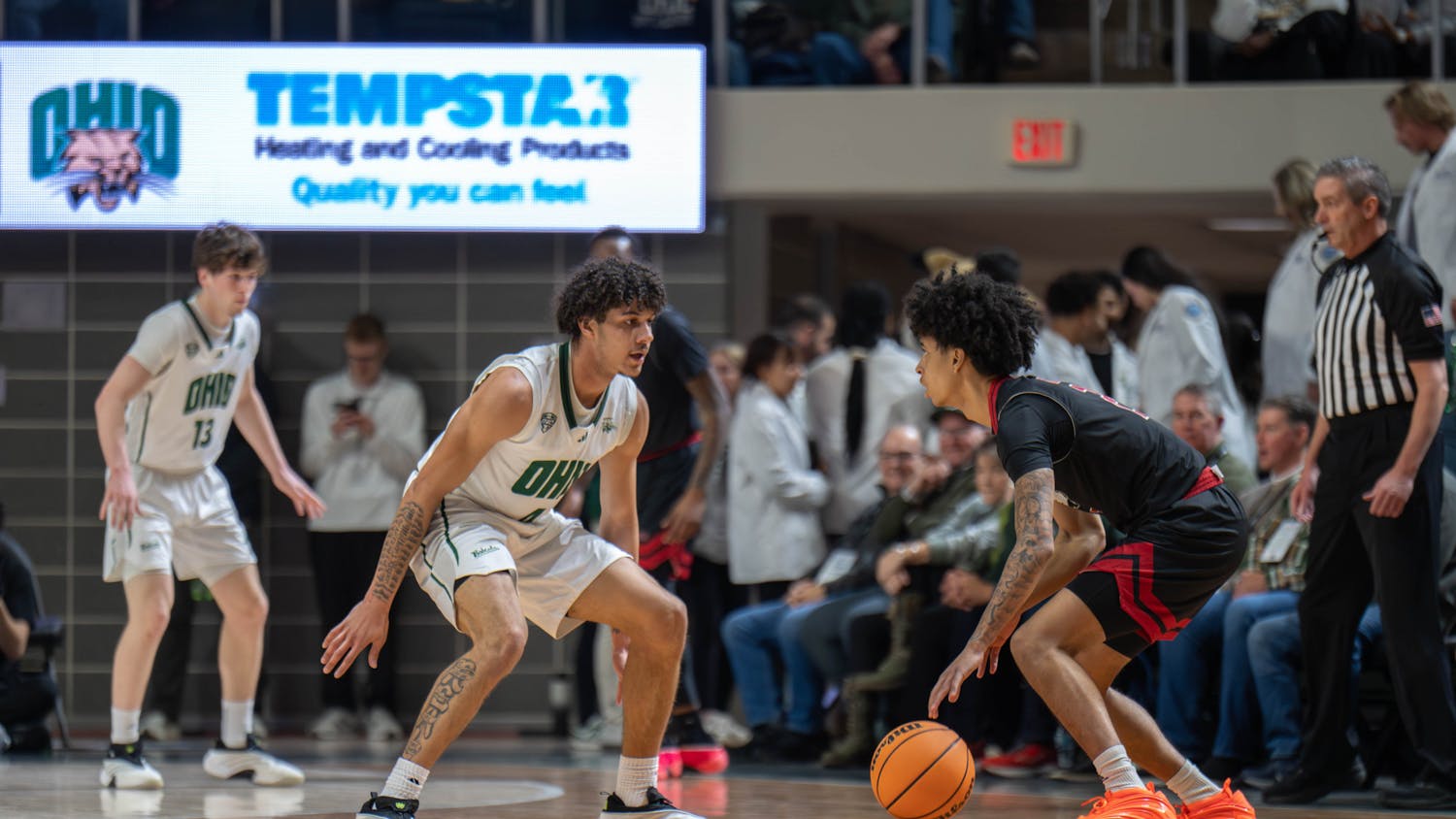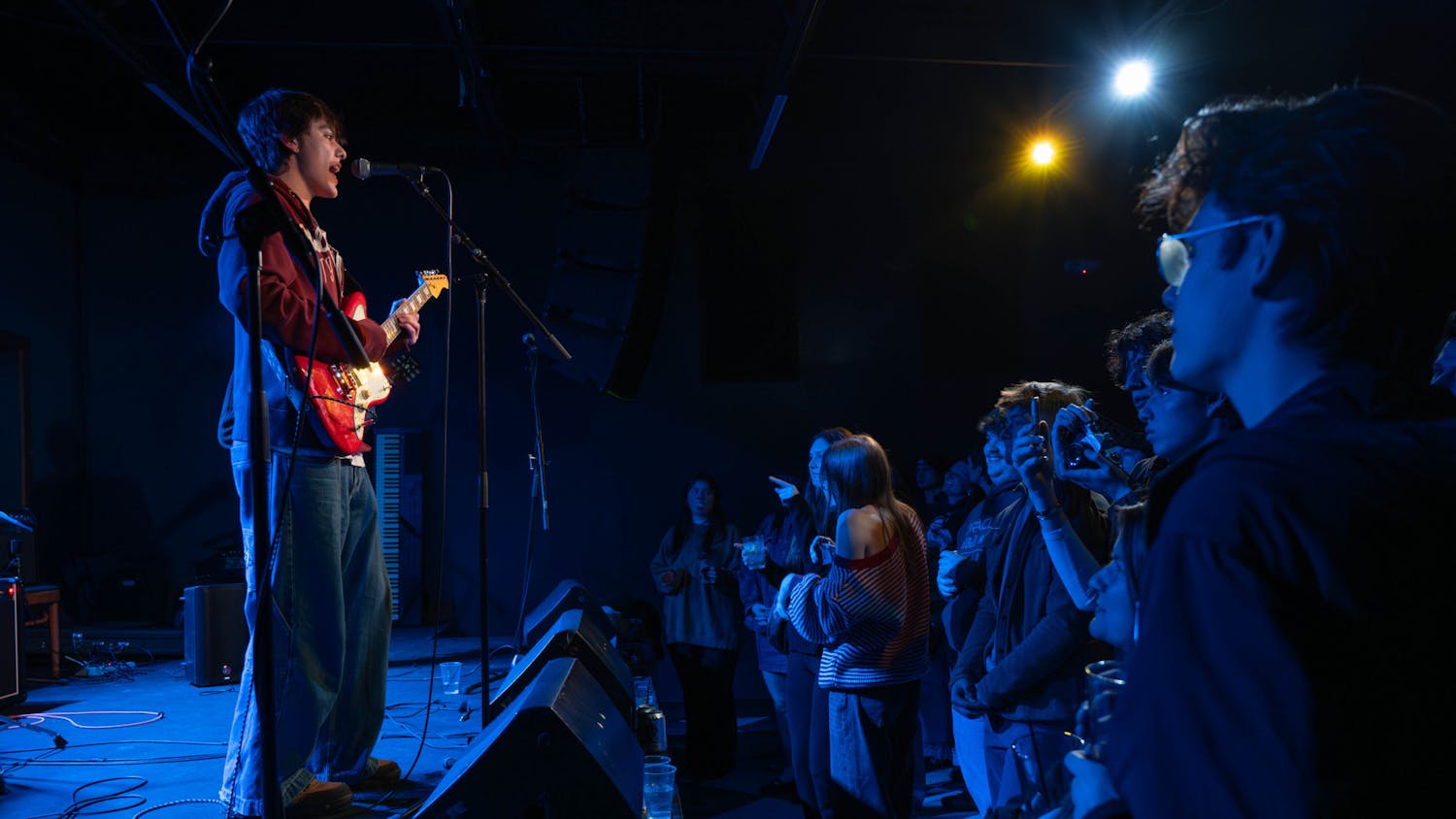Color of Music Collective is an organization founded by Mia Van Allen in May 2020 with a goal of increasing the public conversation about underrepresented communities within the music industry.
Van Allen knows that having uncomfortable conversations about LGBTQ+, Black, Latinx and other underrepresented communities is necessary to promote the awareness of their unfair treatment in a professional setting. Van Allen had plans of starting COMC since she was a sophomore in college, because she has had personal experience with being treated differently due to her identity as a Black woman in America.
The Post sat down with Van Allen to talk about the collective and why it’s beneficial.
The Post: I saw on the website that the Color of Music Collective was started to amplify the voices of people of color and LGBTQ+ individuals that are working in the music industry. What steps are you taking in changing this?
Van Allen: We got founded in May 2020, and in 2020, the shift in the music industry just started to change. Meaning after the sad events of the George Floyd incident, there were a lot of companies in the industry that were really bothered by this. Artists were bothered, clients were bothered and even employees were bothered and they wanted to see change. And so I wanted to start this organization since I was probably a sophomore in college because I worked in the industry at the age of 18. I worked my way up, and I was often the only person of color and sometimes even the only woman. We need more Black representation and more LGBTQ+ representation in the music industry. I think the Color of Music Collective is a big part of that change, but it's going to take a long time, because if you think about it, managers and agents in the music industry really started in the 1940s.
If you think about that and the 1940s, what was that time? In the US and in the world, very, very racist and Black people couldn't even go to college. So you still have a lot of these corporate companies that are built on racism. So it's going to take, I would say, a long time. But that's why I started the Color of Music Collective, because I know, as a Black woman, how long this is going to take, and I want to be a part of the change. I wanted to start as soon as I graduated college, which was in May 2020. So I think it's going to be a long time.
TP: Diversity within the music industry is important because more artists will feel comfortable and able to reveal their true selves through their music. Making sure that the people behind the scenes, the business part of it, are able to understand what the artists are talking about is important. Do you know some other benefits of an inclusive music industry?
VA: I noticed a lot of artists become more vulnerable because they have all this time where they're stuck at home and they are trying to really work on themselves and their music. And they're producing these really beautiful songs where I feel like if COVID didn't happen, we wouldn’t be hearing them, and that takes a lot emotionally on an artist. I think after COVID, when venues can reopen and artists can go back on tour, there's going to be a change. The way a show is produced is going to have more Black, more LGBTQ+ engineers who are helping set up for the show and helping monitor the show. We're going to have more stage crews of all different racial and socioeconomic backgrounds and also LGBTQ identities. And I feel like with music, we are now just beginning to accept those who are “different.” I hate that word.
TP: What is your position in the music industry? Are members of COMC working in the music industry? What types of jobs do they usually have?
VA: When I started COMC, I wanted all my staff to be POC or LGBTQ+ identifying. So I have about 80 people on my team and some of them are first generation, queer, closeted students or closeted working professionals. I have people from all different backgrounds and that's something that I'm really proud of now: how I've been able to not only believe in our mission, but can understand it on the side.
Everyone works in the music industry or if not now, I think they want to transition into it. With COVID, I feel like students are so lucky right now, because all they can do is learn and continue to grow. And for those grads or for working professionals who want to switch or, you know, to try to get a job again, after being furloughed, it is much, much, much more difficult because I feel like with students, I get sent emails all the time about virtual internships and we can't accept post-grads because you have to get college credit.
I work at the Village Recorder, which is the second oldest studio in the US. It's in LA, and I work for the CEO directly. He's also on the Grammy board. He's been on the Grammy board since 1988, so for a really long time. It's really cool being part of the voting process, and especially this year, as a Black woman, I was really proud to see some artists that have been unnoticed get those nominations.
We've been working really hard, especially for the singer-songwriters, and lead artists as well. So that was really cool to see. I just started working here in July. I'm really happy to have a job in the music industry at all.
TP: Have you personally experienced being discriminated against, or treated differently, in the music industry, particularly?
VA: Yes. I wish I could say I haven’t. I have a couple of times. Discrimination, I feel like, means something different to different people and it can be interpreted in different ways. So definitely keep that in mind.
For me, it was my internship. I was interning in New York and I was so excited of course, because New York, for any person in college who gets an internship there, it's crazy. And the company was amazing. I was so stoked to be a part of it, but when I walked in, I just immediately felt weird. I felt really uncomfortable. I felt like this was not a good choice, which was a little bit troubling because I traveled so far and you know, I got a place in New York, so I had to stay.
So I was like, “Okay, look. Maybe I'm wrong. Maybe things will turn out different.” I was the only Black person and I just felt really alone. I was an incoming senior and all the other interns were freshmen, and so I thought, “Oh, maybe they'll get some more advanced work because I have more experience.” That's typically what happens in a music internship: the more experience you have, the better work you get.
I just was shuffling through Excel spreadsheets. I wasn't getting any writing, which is what I'm known for. My writing skills are what got me so far in the music industry. I just felt like they were really stepping on eggshells with me. The tone from the supervisor was really, derogatory, I'll say that.
TP: I saw on the Color of Music Collective’s website that you guys hold virtual panels. What are some of the subjects that are discussed in these panels?
VA: I started it during the part of the pandemic when the job market was still doing OK. People wanted advice on how to navigate the job field for jobs and internships. People don't know that for people of color, or queer identifying folks, the job application process... you have to treat it very differently. You don't want to, like I was told from older, Black music experts, present yourself as “too Black.” You don't want to brand yourself as someone who just wants to focus on “urban music.” I hate the word urban. The fact that I have to brand myself, and try to be someone who I'm not just to get a job is really sickening.
After that we have had panels about things like digital marketing, music streaming and digital analytics. So, why people like indie artists should really think about registering for a publishing company, as it can help them get streams and get noticed and all that.
We're going to have a panel about entertainment lawyers, which is super cool. For Black History Month, we had a partnership with Def Jam, which was incredible. It focused on Black mentorship in the music industry.






